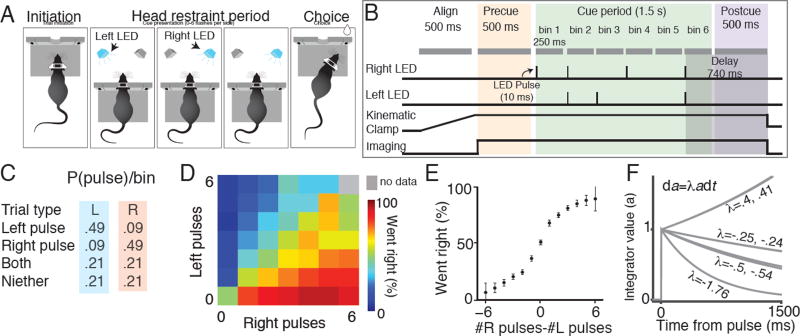Figure 2. Behavioral performance of voluntary head restrained rats on a pulse-based accumulation of evidence task.
(A) Schematic of the behavioral task during an example trial (see Scott et al. 2015). Initiation: A rat initiates a behavioral trial by inserting its head and headplate into a custom headport along one wall of an operant training box. Head restraint period: The rat is presented with a series of pseudo-randomly timed flashes from two LEDs positioned within the animals left and right visual hemifields. Choice: After presentation of the cues, the subject is released from restraint and is free to make a behavioral report by inserting its nose to one of the side ports. Water reward (25 µl) was baited on the side that had the greater number of flashes. (B) The head restraint period is divided into a series of segments. Align: A 500 ms alignment period in which the kinematic clamp registers the position of the head and headplate. Precue: A 500 ms imaging period in which the baseline fluorescence of the cells in the field of view is recorded. Cue: The cue presentation period consists of 2 to 6 bins, each starting with a 10 ms pulse period, followed by a 240 ms refractory period. Delay: A 500 ms delay before the subject is released from head restraint. (C) Probability of left and right pulses in each cue bin. Probability of each event (left pulse only, right pulse only, both left and right pulses, no pulses) depends on whether the trial was a left generative trial (blue) or right generative trial (pink). (D) Behavioral performance on all stimulus types (# right and # left) pooled across 7 subjects. Color of each small square indicates the percentage of trials in which the animals went right for that combination of right and left flashes. (E) Mean psychophysical performance across all subjects for trials with different evidence strengths (# right pulses - # left pulses). (F) Predicted response of the accumulator to a pulse of evidence, based on these λ values. A previously described behavioral model (Brunton et al. 2013) was used to find the time constant of the accumulator (1/λ, in units of sec-1) for each rat (see Methods).

